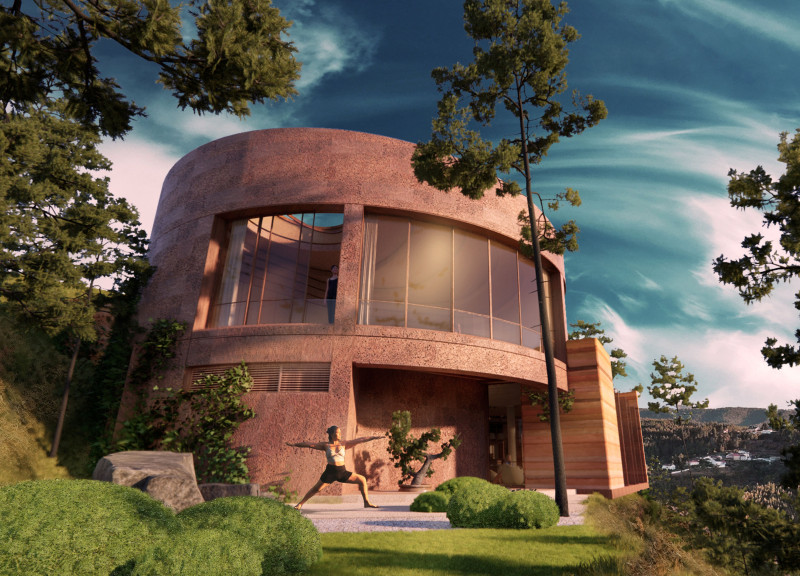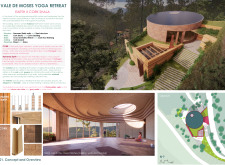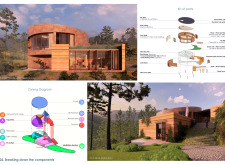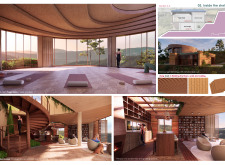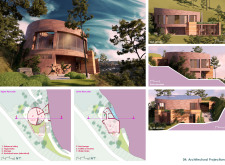5 key facts about this project
The Vale De Moses Yoga Retreat is situated in the scenic landscape of Portugal, focusing on the coexistence of architecture and nature. It serves as a peaceful environment for relaxation and mindfulness, showcasing an overall design concept that prioritizes harmony with the natural world. Visitors are encouraged to engage deeply with their surroundings, creating a meaningful retreat experience.
Architectural Concept
The design of Vale De Moses emphasizes a thoughtful dialogue with the landscape. It incorporates sustainable materials to minimize environmental impact. The layout of the retreat is organized in a way that fosters tranquility, moving visitors through interconnected spaces that invite introspection and wellness.
Material Choices
Rammed earth serves as the primary material for the structural walls. It provides thermal mass and durability while enhancing the building's link to the geological features of the region. Cork bricks and cork cladding are used as wall finishes. These materials offer thermal and acoustic insulation, reflecting a commitment to local resources and environmental responsibility.
Interior Design
Interiors feature cross-laminated timber and cork floor finishing, creating a warm and inviting atmosphere. The use of wood contributes to the sustainability of the project while enhancing the sensory experience. Openings designed with wood and glass allow natural light to enter the spaces, framing views of the surrounding greenery. This connection with nature is an essential aspect of the retreat's design.
Sustainable Practices
Beyond material selection, the retreat incorporates various sustainable technologies. Photovoltaic cells on the roof generate energy, while rainwater and greywater collection systems highlight efficient resource management. These features support the retreat's goal of creating a self-sufficient environment that meets the needs of its visitors.
Meditation gardens are thoughtfully arranged around the building, providing outdoor spaces that encourage reflection. These gardens play a significant role in the overall experience, inviting visitors to connect with the tranquility of nature.


